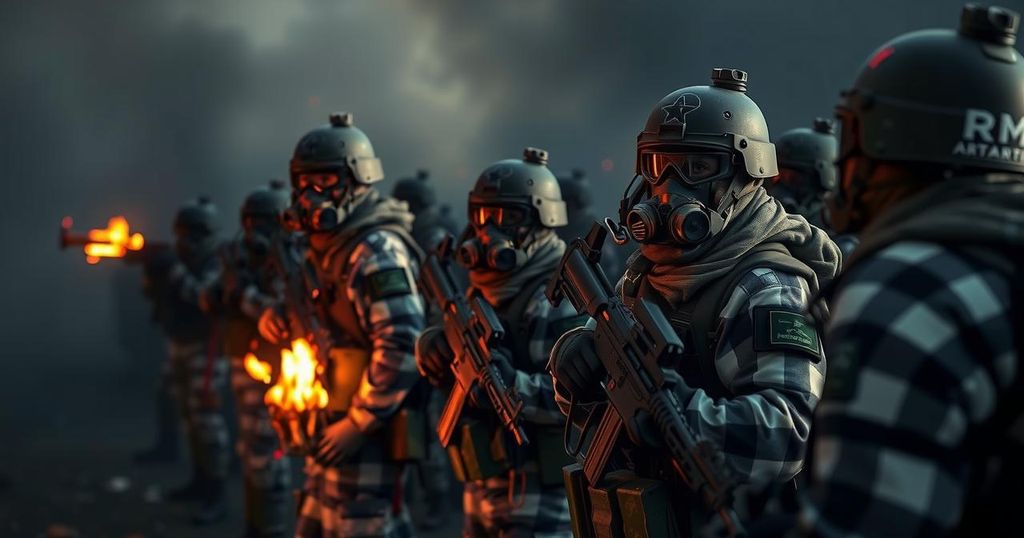Iraqi Militias Pledge Support to Assad Amidst Renewed Insurgent Offensive in Syria
An Iraqi militia has pledged support to Syrian President Bashar al-Assad as insurgents launch a significant offensive in Syria, capturing parts of Aleppo. This development raises tensions amidst ongoing conflicts involving Israel and Iran-backed forces. The Nujaba Movement, expressing its commitment to Assad, warns against U.S.-backed insurgent threats. Concurrently, Kurdish forces are monitoring the situation and considering intervention if necessary.
A faction of Iraqi militias aligned with the Iran-led Axis of Resistance has pledged military support to Syrian President Bashar al-Assad amid intensified fighting in Syria. This escalation follows a surprise offensive by insurgents, particularly the Islamist group Hayat Tahrir al-Sham, which has already taken control of parts of Aleppo and is advancing towards Hama. The situation marks notable territorial changes in Syria’s protracted civil war and coincides with wider regional hostilities, including ongoing tensions between Israel and the Iran-aligned coalition following a Hamas attack on Israel last year.
The Nujaba Movement, an Iraqi militia group with a history of involvement in Syria, has publicly stated its readiness to back Assad against what it characterizes as U.S.-backed insurgents. Nujaba spokesperson Hussein al-Musawi emphasized that the insurgent actions serve Western interests in fracturing the Iran-aligned coalition, stating, “We realize that the movement of the armed terrorist groups… are moving according to American will.” He asserted their commitment to preventing any threats to Iraqi stability posed by insurgents.
As fighting continues, the Israeli Defense Forces (IDF) reportedly conducted strikes against Hezbollah targets near the Syrian-Lebanese border, suggesting an interconnectedness of various conflicts. Meanwhile, diplomatic efforts are unfolding among Iranian, Russian, and Turkish officials to address the rebel advances. The ongoing turmoil indicates a complex web of alliances and enmities that characterizes the current conflict.
The Kurdish-led Syrian Democratic Forces (SDF), while also monitoring the developments, accused Turkey of orchestrating the rebel offensive and expressed a readiness to intervene. SDF spokesperson Farhad Shami noted, “Our national and moral priority remains the defense of our people and our regions.” Thus, the situation remains fluid with multiple actors and potential escalations as regional stability hangs in the balance.
The Syrian civil war, now in its twelfth year, has involved numerous local, regional, and international actors. The conflict originally began as protests against President Bashar al-Assad’s regime but evolved into a complex war with various factions vying for power. The rise of groups like Hayat Tahrir al-Sham and the involvement of external powers, including Iran, Turkey, and the United States, have added layers of complexity to the conflict. The recent resurgence of insurgent activity in key cities such as Aleppo stems from a combination of internal dissent and external backing, stressing the fragile security of the region.
In summary, the escalation of conflict in Syria signifies a pivotal moment in the civil war, with the potential for broader regional repercussions. As the Iranian-backed Iraqi militias stand ready to assist Assad against advancing insurgents, the dynamics between competing factions continue to shape the landscape of this protracted conflict. The interplay of local and international interests remains critical in determining the future of Syrian stability and security.
Original Source: www.newsweek.com




Post Comment